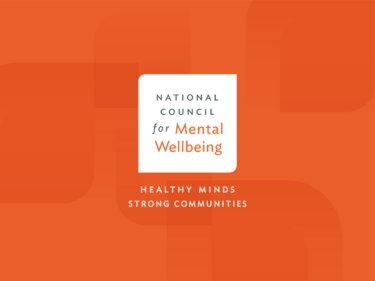BY THE NUMBERS
76% of Certified Community Behavioral Health Clinics (CCBHCs) participate in specialty courts, and 72% train law enforcement and corrections officers in mental health and substance use awareness, according to a new National Council report discussing how states and localities utilize the CCBHC model to partner with various divisions of the justice systems.
Register Now: Hill Day at Home
Share your experiences, hear from peers and learn how to elevate your advocacy during Hill Day at Home, our annual advocacy event uniting thousands of people online to move forward important legislation. Last year, Hill Day at Home resulted in 5,273 advocacy actions and 416 members of Congress being reached. Don’t miss your chance to make a mark this year – join us on Tuesday, October 19, to raise the volume on behavioral health care issues!
Budget Reconciliation Update
Five House committees met this week to mark up their respective reconciliation bills. House committees were previously instructed to report out their specific reconciliation language by September 15, but a floor vote could be held as far out as October. The House Ways and Means Committee considered several policies on: universal paid family and medical leave; construction of child care facilities; Medicare coverage of vision, dental, and hearing benefits; and reauthorizing the Health Profession Opportunity Grant program.
Provider Relief Fund FAQs
The Congressional Research Service recently published The Provider Relief Fund: Frequently Asked Questions. The answers in that report cover information on the Provider Relief Fund (PRF), how funds have been allocated, and PRF reporting requirements. Additionally, the report outlines various ways the PRF can be used to pay providers and cover various costs. As a reminder, providers who received a minimum of $10,000 before June 30, 2020, have a reporting deadline of September 30, 2021, and they will have to return unspent funds by October 30.
Biden Administration Plan to Reduce Fentanyl-Related Substances
This week, Acting Director of Office of National Drug Control Policy, Regina LaBelle, sent a letter to House and Senate leadership recommending a five-pronged approach to reduce the supply of illicitly manufactured fentanyl-related substances (FRS), developed in collaboration with the Department of Justice and the Department of Health and Human Services. To support those efforts the letter highlights the President’s FY2022 Budget Request for national drug program agencies, including $4.5 billion to the Substance Abuse Prevention Treatment Block Grant and its 10% set-aside for recovery services.
NatCon22 Call for Presentations
Each year, we invite the best minds in health care to speak at NatCon – trailblazers, visionaries and experts who are shaping the future through their ideas and actions. Want to join them? You’re invited to share your thought leadership on stage at NatCon22 below, the largest conference in mental health and substance use treatment, from April 11-13 in the Washington DC area. We are now accepting presentation proposals for our Workshops, TED-style Talks, Ignite Sessions, iPoster Presentations and NatCon22 Shark Tank. Applications are due by Friday, October 8.
Join us as we celebrate our resilience, reflect on the past and redefine the future of our field – only at NatCon22, the largest conference in mental health and substance use treatment.
ADVOCACY CORNER
Sign Up for Advocacy Alerts. Don’t miss out! Sign up for the National Council’s advocacy alerts and be the first to know when mental health and substance use legislation is moving forward. Send to your networks and ensure that your voice is heard on the Hill.
HAPPENING ON THE HILL
Biden Administration Unveils Pandemic Preparedness Plan. The Biden Administration recently released a $65 billion plan outlining legislative priorities for pandemic preparedness.
Guest Author
Policy Associate
The National Council

